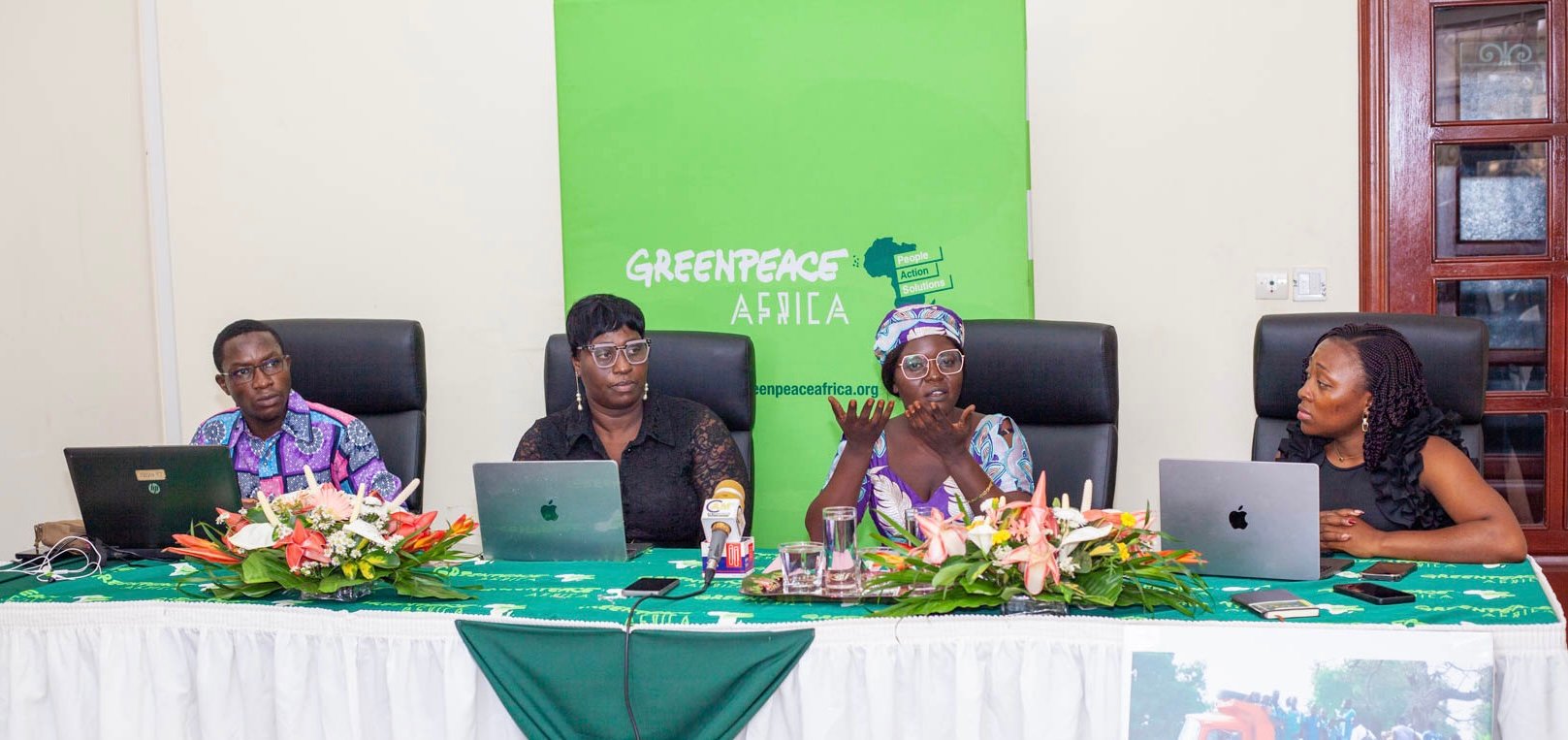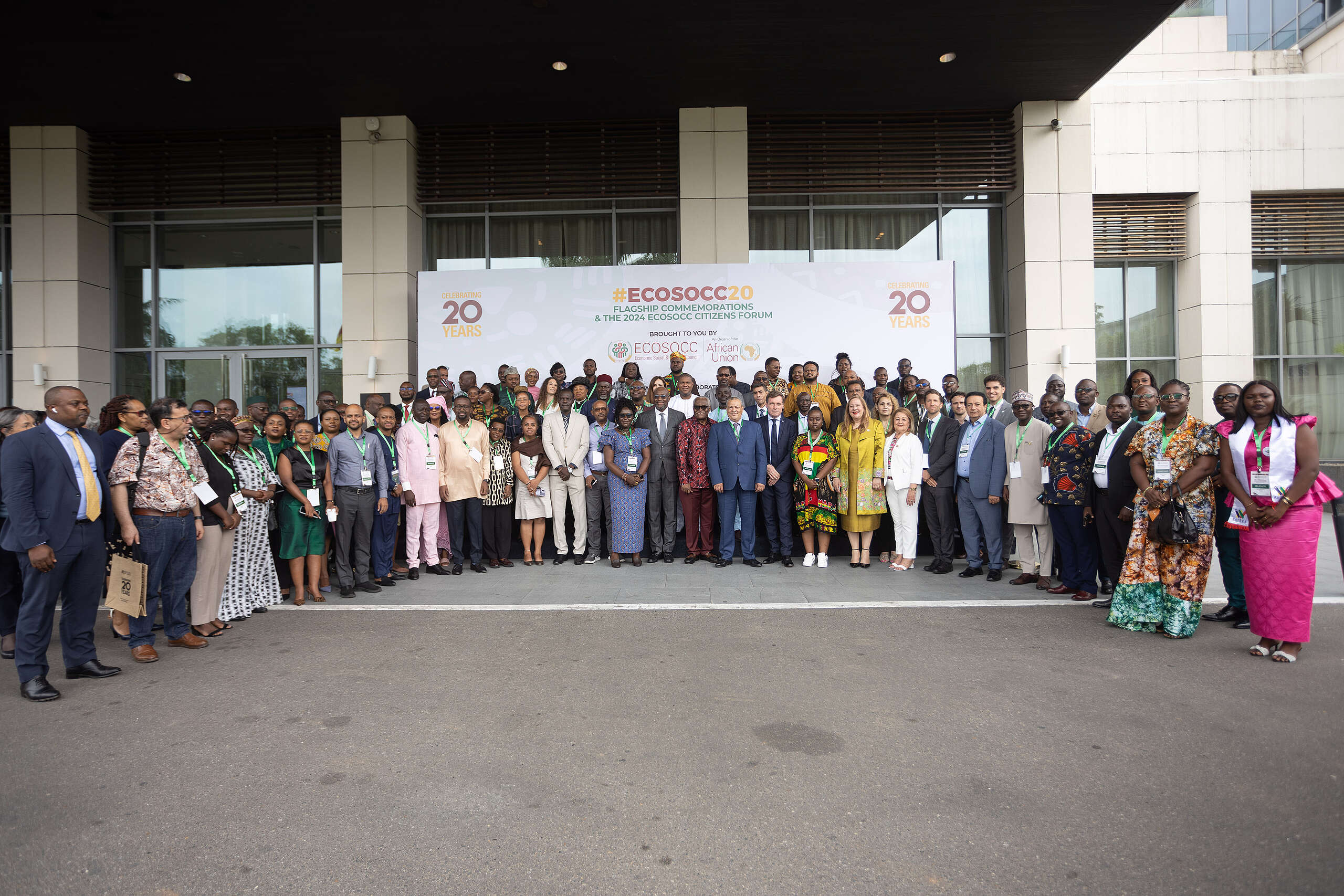South Africa is currently facing an air pollution crisis
From smog in cities to pollution from coal-fired power stations, air pollution poses major threats to people’s health and their lives:
- Latest estimates are that air pollution causes 8.8 million premature deaths every year worldwide. This means that air pollution causes more deaths per year than smoking tobacco[1].
- The majority of these deaths are caused by heart attacks, strokes and other types of cardiovascular diseases. It is estimated that air pollution from all sources shortens life expectancy in Gauteng by 3 years[2].
- A 2016 report by the World Bank estimates that roughly 20 000 South Africans die from air pollution-related causes every year[3].
- A different study by the International Growth Center at the University of Cape Town estimated an even higher cost of 27 000 deaths and over 300 billion Rand[4].
- The Johannesburg-Pretoria metro area suffers the highest loss of life, followed by other densely populated areas such as Cape Town and Durban.
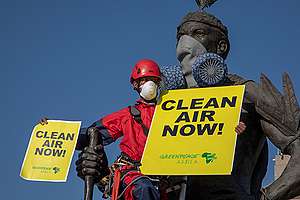
Ask Dr. Thuli Khumalo to compel Eskom to Comply with Air Quality Standards
What causes air pollution in South Africa?
- Air pollution comes from a very wide variety of sources, including power plants, industrial processes, transport, the combustion of coal, biomass and kerosene.
- Significant contributors to air pollution in South Africa are the clusters of coal-fired power stations in Mpumalanga and Limpopo owned and operated by Eskom, which produce almost 85% of our electricity.
- In October 2018, Greenpeace released a shocking global NO2 pollution map, which clearly demonstrated the scale of the air pollution crisis in South Africa. For the months of June to August in 2018, Mpumalanga was the worst NO2 pollution hotspot in the world.
- An updated analysis of a full year’s NO2 satellite data, released in March 2019 confirms that Mpumalanga has the most polluting cluster of coal-fired power stations in the world. Overall Mpumalanga still ranks 4th for NO2 and 3rd for SO2 emissions in the world.
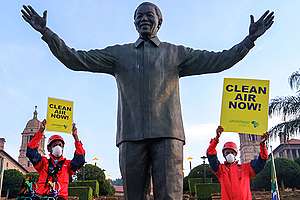
What are the Minimum Emission Standards?
- The Minimum Emission Standards (MES) limit the maximum amount of air pollution (NOx, SO2 and PM 2.5) allowed by industries, to limit negative impacts on human health.
- The MES were first published in 2010, and required existing industries (including all of Eskom’s coal-fired power stations) to comply with the MES by 1 April 2015, and with a slightly stricter set of MES by 1 April 2020. Eskom themselves were involved in the five-year multi-stakeholder process to set the MES.
Eskom’s licence to kill
- Various studies confirm that Eskom’s pollution causes approximately 2 000 premature deaths a year, over three times the number that Eskom itself estimates.
- The air pollution and premature deaths are not limited to the coal regions themselves.
- Greenpeace has assessed the health impacts of Eskom’s emissions on the Gauteng region in detail, because of the proximity of both Mpumalanga and Limpopo. This research reveals massive health impacts of Eskom’s coal-fired power stations’ non-compliance with current MES on the Gauteng Region: in total, Eskom’s power plant emissions are responsible for approximately 420 premature deaths[5] per year in Gauteng alone[6].
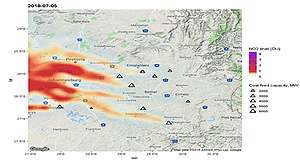
NO2 pollution plumes from Mpumalanga affecting Gauteng City district
- Despite this, Eskom is asking the National Air Quality Officer to approve their application to postpone complying with the MES. If their application is approved, it would allow them to operate their entire existing fleet without even rudimentary controls for the most dangerous pollutants emitted from coal-fired power plants: SO2, NOx, PM, and mercury.
- The health, economic, and environmental impacts of the resulting air pollution are significant. Health impacts related to coal in South Africa include lung cancer, heart disease, pulmonary disease, stroke, asthma, and respiratory infections[7].
What can be done?
- We need to take steps to protect our health, and the health of our children, who are most vulnerable to the impacts of air pollution. One way to do this is to make sure that our National Air Quality Officer makes Eskom and other polluters comply with the MES. Sign our petition to stop Eskom’s licence to kill here.
Greenpeace opposes any further postponements or suspensions being given to Eskom by the National Air Quality Officer, because of the thousands of premature deaths that will be caused if Eskom does not comply.
Coal kills, and Eskom must either comply with the MES, or must plan to close down its coal-fired power stations faster. Even one premature death is one too many.
Notes:
[1] The World Health Organisation estimates tobacco smoking was responsible for an extra 7.2 million deaths in 2015
[2] https://aqli.epic.uchicago.edu/the-index/
[3]http://documents.worldbank.org/curated/en/781521473177013155/pdf/108141-REVISED-Cost-of-PollutionWebCORRECTEDfile.pdf
[4] https://www.theigc.org/blog/the-cost-of-air-pollution-in-south-africa/
[5] “Premature deaths” are defined as deaths that would be avoided, based on epidemiological risk models, if exposure to air pollution was reduced.
[6] These impacts break down into 140 premature deaths in Johannesburg, 120 in Tshwane, 120 in Ekurhuleni, 20 in Sedibeng and 20 in West Rand. Over the current lifetime of Eskom’s coal power stations an estimated 3,100 premature deaths could be avoided by requiring full compliance of Eskom with the MES.
[7]https://cer.org.za/wp-content/uploads/2017/04/Annexure-Health-impacts-of-coal-fired-generation-in-South-Africa-310317.pdf

